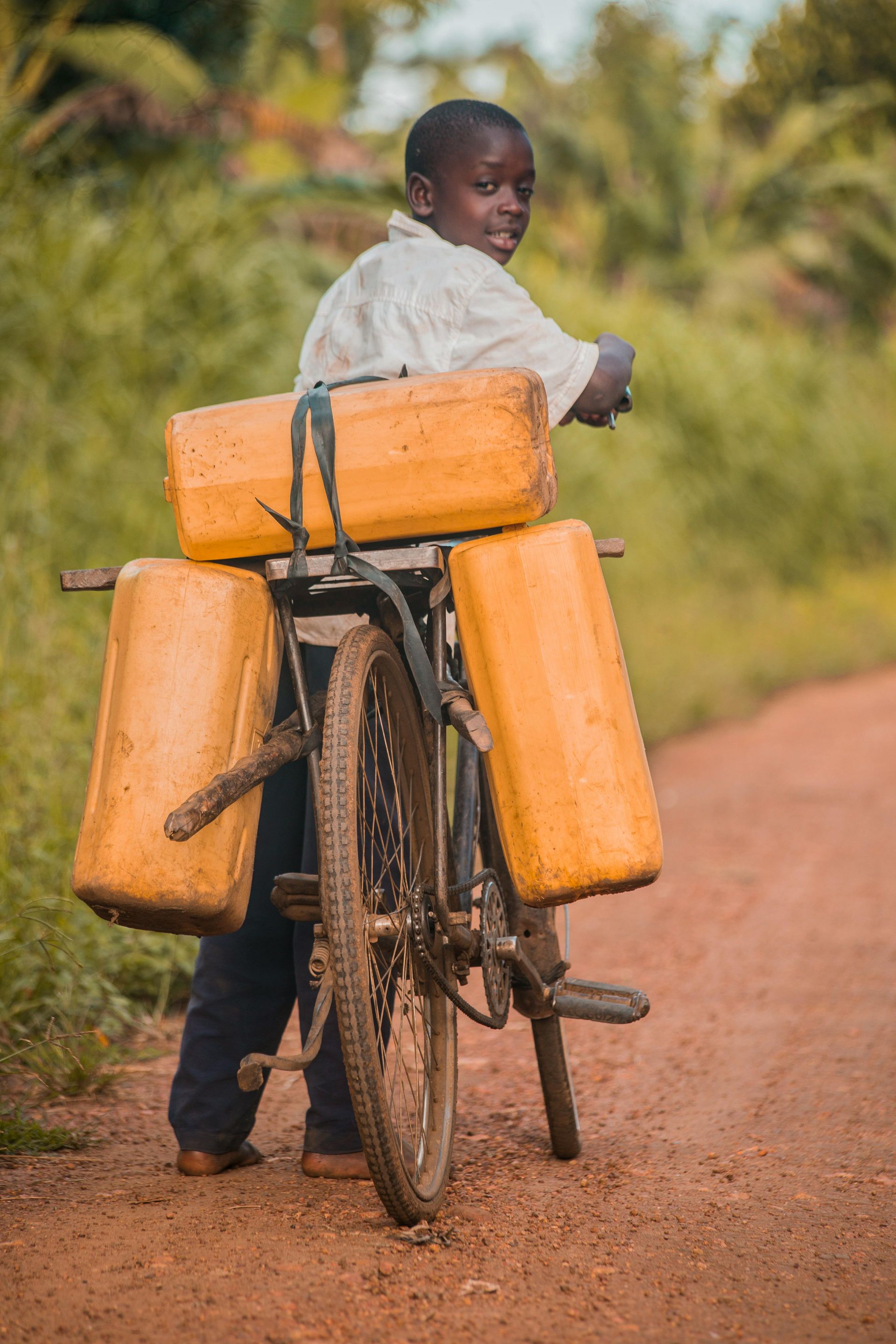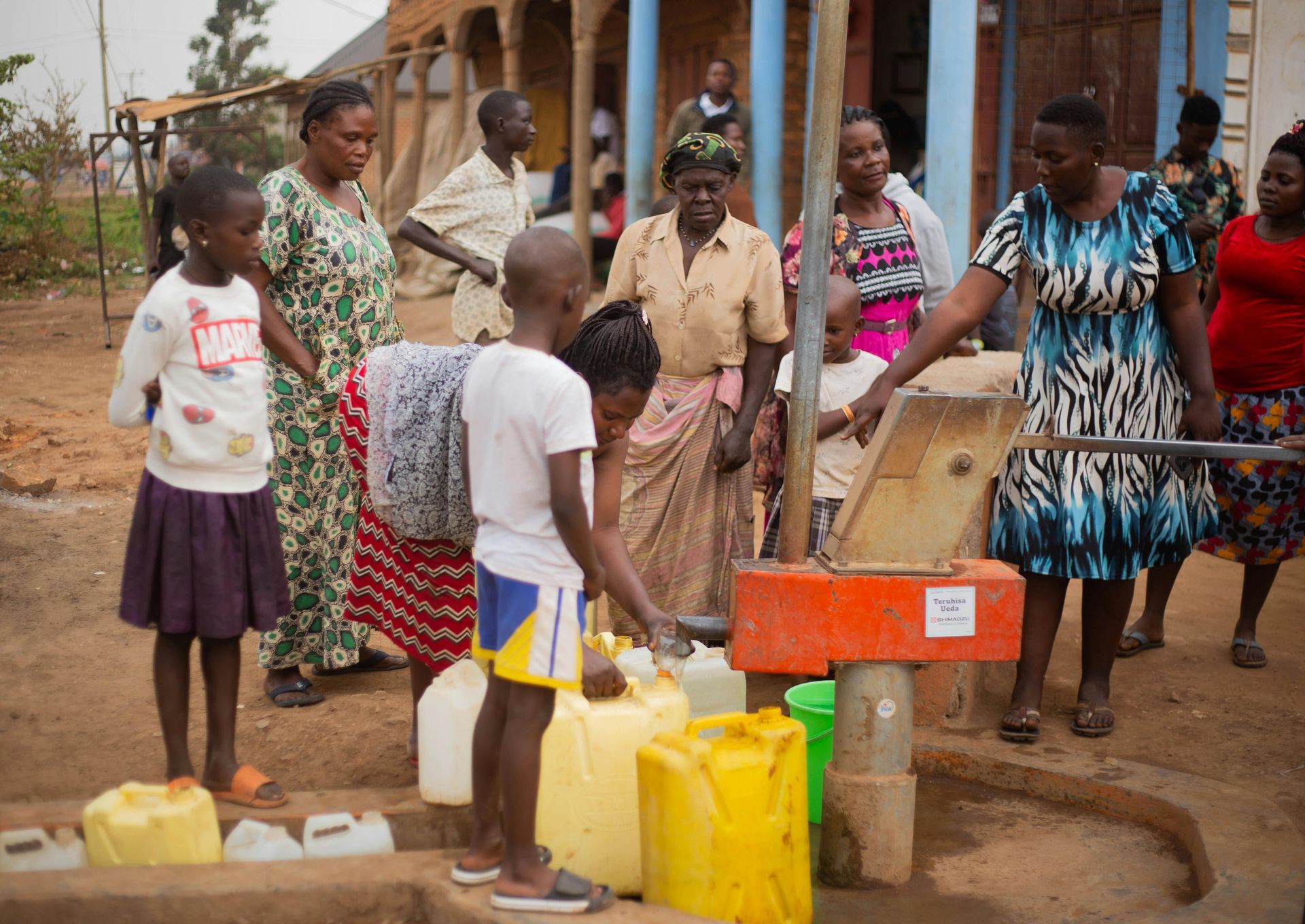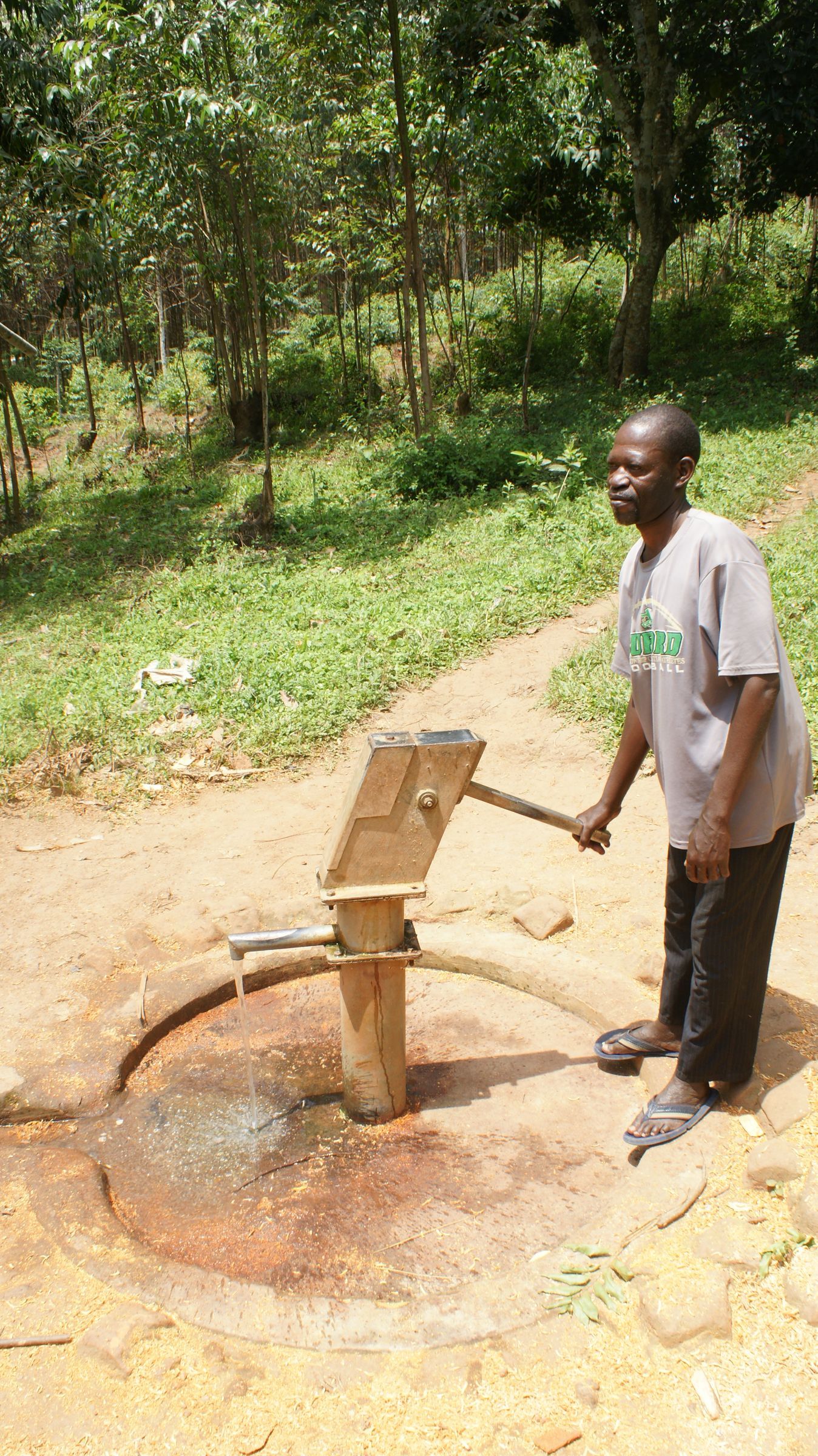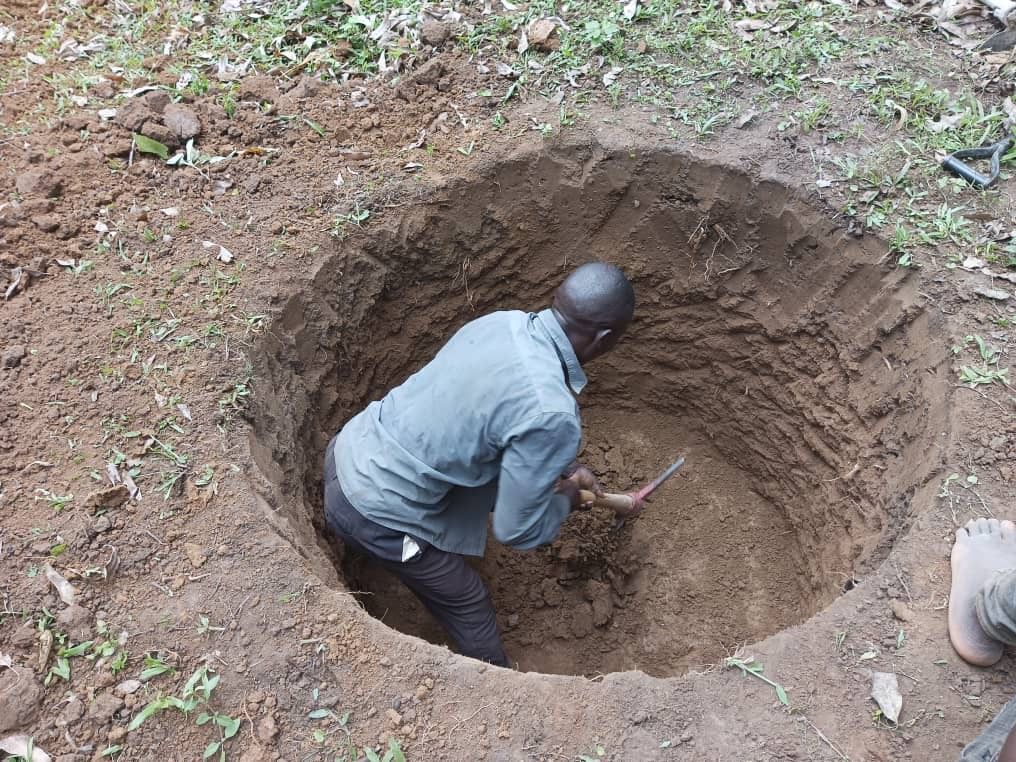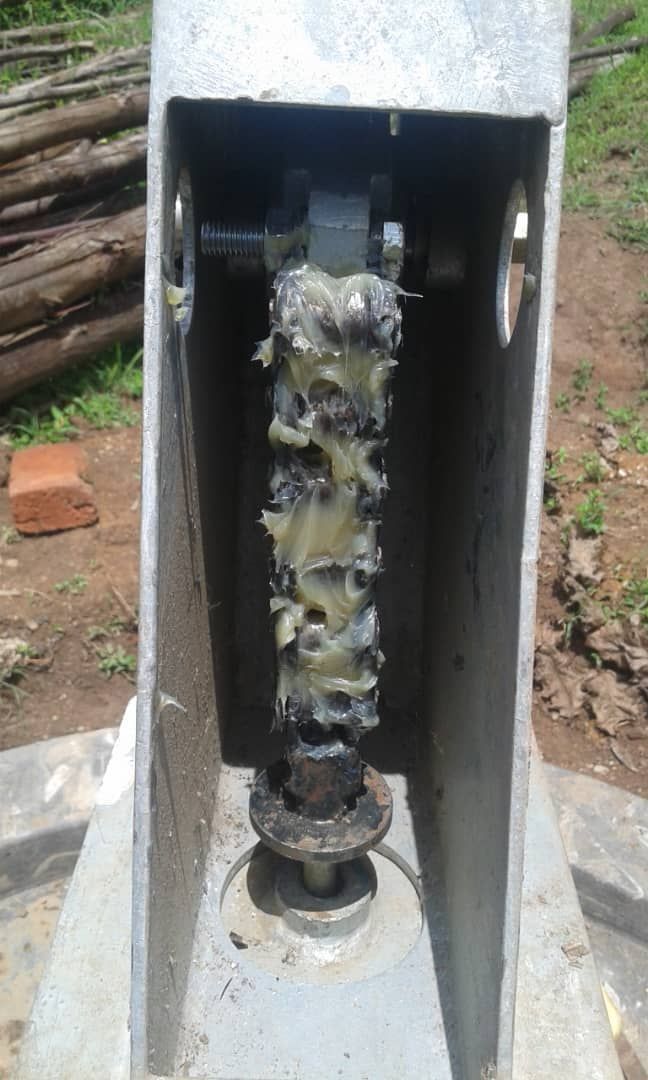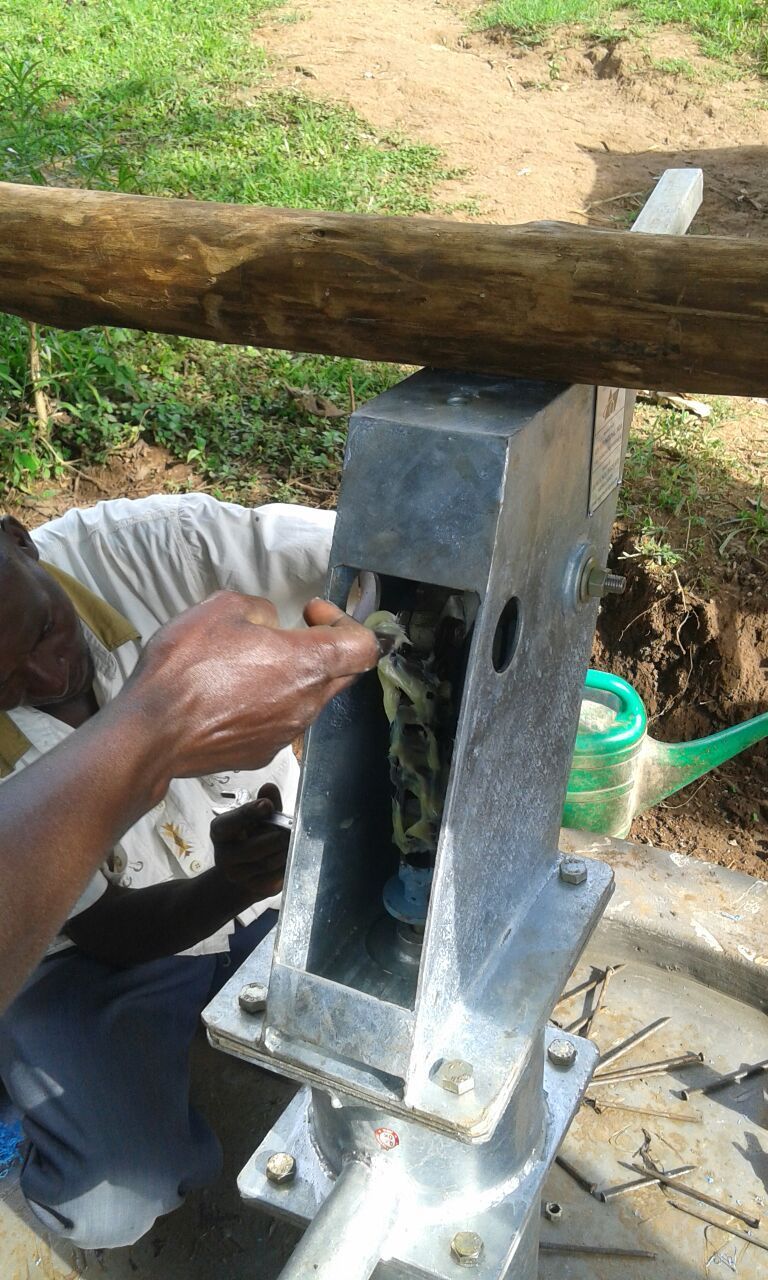Boreholes project
Access to clean water is a critical necessity for rural communities in Uganda, where many still lack reliable sources of safe drinking water. Installing water pumps for digging boreholes is an essential step in addressing this urgent nee
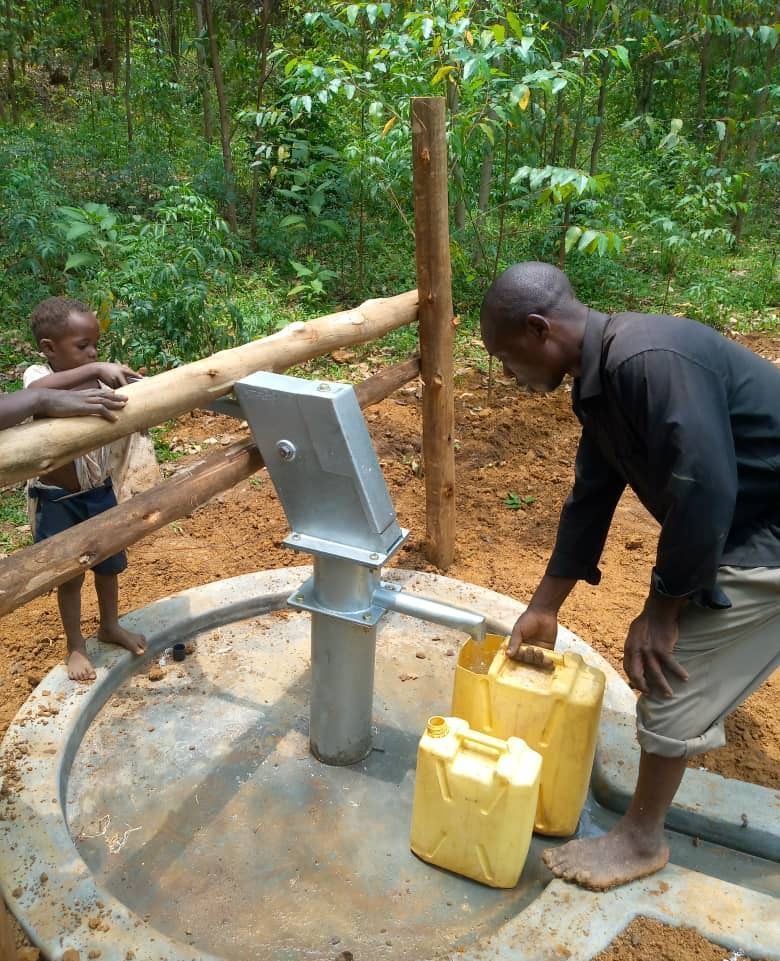
What are Boreholes?
A borehole in rural Uganda is a narrow, deep well drilled into the ground to access underground water sources. These boreholes are typically drilled to depths of 150-200 feet to reach the aquifer, where clean groundwater is abundant. Once drilled, the borehole is fitted with a hand pump or motorized pump to bring water to the surface, providing a reliable and safe water supply for rural communities. The borehole is sealed with concrete to prevent contamination, ensuring that the water remains clean and safe for consumption.
In rural Uganda, where access to clean water is often limited, boreholes serve as a crucial infrastructure, supplying water for drinking, cooking, and other household uses to hundreds or even thousands of people in surrounding villages.These water sources are particularly valuable as they can provide a year-round water supply, even during dry seasons, significantly improving the health, productivity, and overall quality of life for rural Ugandans.
Importance of Boreholes
Boreholes are vital for the rural community of Ndegeya, Uganda, providing numerous benefits that significantly improve the quality of life for residents.
Access to Clean, Safe Water
The health benefits associated with boreholes are profound. Access to clean drinking water reduces the incidence of waterborne diseases such as cholera and diarrhea, which are rampant in areas without safe water sources. In Uganda, it has been reported that rehabilitated boreholes can prevent up to 100 cases of diarrhea and save multiple lives each year. By ensuring that communities have access to safe drinking water, we are also investing in their future health and well-being.
Time and Energy Savings
With boreholes in the community, residents of Ndegeya no longer need to walk long distances to collect water. This is particularly beneficial for women and children, who are often responsible for this task. The time saved can be redirected towards:Education: Children can attend school more regularly
Economic activities: Women can engage in income-generating pursuits
Agriculture: Families can invest more time in farming and other productive activities
Improved Agricultural Productivity
Boreholes in Ndegeya enable year-round cultivation and irrigation, even during dry seasons. This allows local farmers to increase their crop yields, diversify into higher-value cash crops, become more resilient to climate change impacts and additionally, the reliable water supply supports livestock, improving animal health and productivity.
Community Development
Boreholes often serve as a focal point for broader community development initiatives in rural areas like Ndegeya. These may include: hygiene and sanitation education programs, formation of water user committees, tree nurseries and environmental projects and empowerment of women through management roles.
Economic Empowerment
The installation of boreholes can create local employment opportunities by developing small businesses that utilize the water supply
By providing this essential infrastructure, boreholes help create a more resilient, productive, and economically vibrant rural community in Ndegeya.In conclusion, boreholes are not just a convenience for Ndegeya; they are a transformative force that improves health, education, agriculture, and economic prospects. They represent a crucial step towards sustainable development and a better quality of life for all residents of this rural Ugandan community.
The Right to Clean Water
The United Nations has recognised the right to clean water as essential for the enjoyment of life and all human rights. However, approximately 748 million people globally lack access to safe drinking water, with many relying on stagnant or contaminated sources.
In Uganda, the quest for clean water remains a pressing challenge that intersects with the
United Nations' Sustainable Development Goal 6 (SDG 6), which aims to ensure availability and sustainable management of water and sanitation for all. The
Ugandan government's commitment to providing safe and affordable drinking water by 2030 is commendable, but it faces obstacles such as increasing pollution, growing demand, and the impacts of climate change. Achieving universal clean water access is not just a matter of infrastructure development, but also requires addressing issues of water cooperation, sustainable management practices, and community engagement.
Challenges and Sustainability
While boreholes offer significant benefits, it is crucial that these installations are sustainable and well-maintained. Regular monitoring and community involvement in maintenance are essential to ensure long-term success. But the borehole in Kalundira illustrates how focused initiatives can change lives by ensuring a dependable source of safe drinking water.
That is why the Laudara Foundation prioritises borehole projects and champions the cause of universal access to clean water. It is together that we can work towards a future where every individual enjoys their right to clean and safe water—a cornerstone of health, dignity, and opportunity for all.
Boreholes: A Game Changer
Boreholes are a beacon of hope for many rural communities. By drilling into underground aquifers, boreholes provide a sustainable source of clean water that can significantly improve health and quality of life.
A great example is the Kalundira village. In our discussion with the council chairman Mr. Muwonge Tonny and the vice chairman Nabisubi Robina we could hear firsthand what the impact of clean water has brought these villagers. They used to go to a waterpond where also the animals drink from and which was used for washing. Thanks to a generous donation from the Joanne Foundation a proper waterpump was installed. And during the day you seen not only the villagers, but also people from nearby villages queuing to get clean and fresh water.



